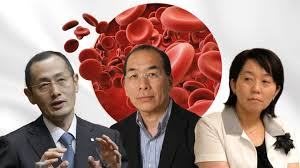
Breaking News
 Windows 11 QEMU/KVM Installation Guide in Linux Including TPM and Secure Boot
Windows 11 QEMU/KVM Installation Guide in Linux Including TPM and Secure Boot
 Silver: US Mint-Delays and Costco Limits Surface
Silver: US Mint-Delays and Costco Limits Surface
 Boots on the Ground...The news is getting worse so keep prepping.
Boots on the Ground...The news is getting worse so keep prepping.
 O'Keefe Media Group: Secret Service Agent Assigned to Vance Leaks Sensitive Information
O'Keefe Media Group: Secret Service Agent Assigned to Vance Leaks Sensitive Information
Top Tech News
 Superheat Unveils the H1: A Revolutionary Bitcoin-Mining Water Heater at CES 2026
Superheat Unveils the H1: A Revolutionary Bitcoin-Mining Water Heater at CES 2026
 World's most powerful hypergravity machine is 1,900X stronger than Earth
World's most powerful hypergravity machine is 1,900X stronger than Earth
 New battery idea gets lots of power out of unusual sulfur chemistry
New battery idea gets lots of power out of unusual sulfur chemistry
 Anti-Aging Drug Regrows Knee Cartilage in Major Breakthrough That Could End Knee Replacements
Anti-Aging Drug Regrows Knee Cartilage in Major Breakthrough That Could End Knee Replacements
 Scientists say recent advances in Quantum Entanglement...
Scientists say recent advances in Quantum Entanglement...
 Solid-State Batteries Are In 'Trailblazer' Mode. What's Holding Them Up?
Solid-State Batteries Are In 'Trailblazer' Mode. What's Holding Them Up?
 US Farmers Began Using Chemical Fertilizer After WW2. Comfrey Is a Natural Super Fertilizer
US Farmers Began Using Chemical Fertilizer After WW2. Comfrey Is a Natural Super Fertilizer
 Kawasaki's four-legged robot-horse vehicle is going into production
Kawasaki's four-legged robot-horse vehicle is going into production
 The First Production All-Solid-State Battery Is Here, And It Promises 5-Minute Charging
The First Production All-Solid-State Battery Is Here, And It Promises 5-Minute Charging
Japan moves to fast-track innovative stem cell therapy with first trials on human hearts

One of the many possibilities could be repairing damaged hearts, something that will soon be put to the test for the first time ever in newly approved clinical trials in Japan.
Since emerging from the laboratory of researcher Shinya Yamanaka in Japan in 2006, the potential of iPSCs has been explored in all kinds of promising research efforts. We have seen them implanted into rabbits to restore their vision, become brain tumor predators, and turned into precursor cells for human organs.
IPSCs are created by first harvesting cells from body tissues and then infecting them with a virus, in turn introducing them to carefully selected genes that return them to their immature state.

 Storage doesn't get much cheaper than this
Storage doesn't get much cheaper than this

